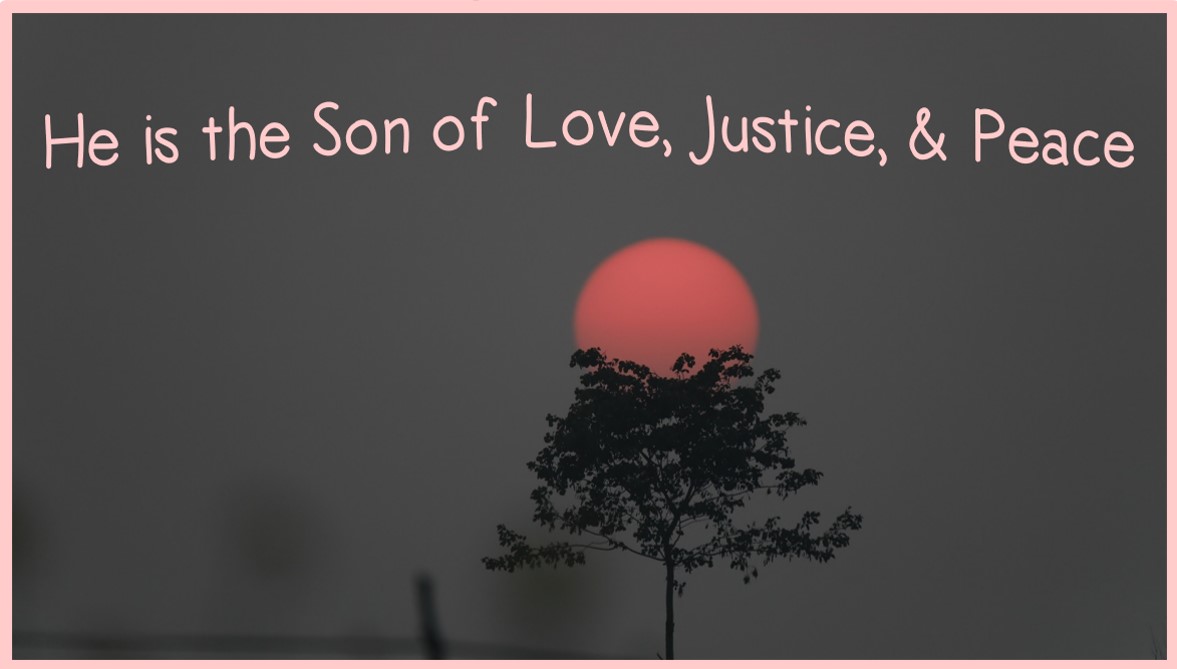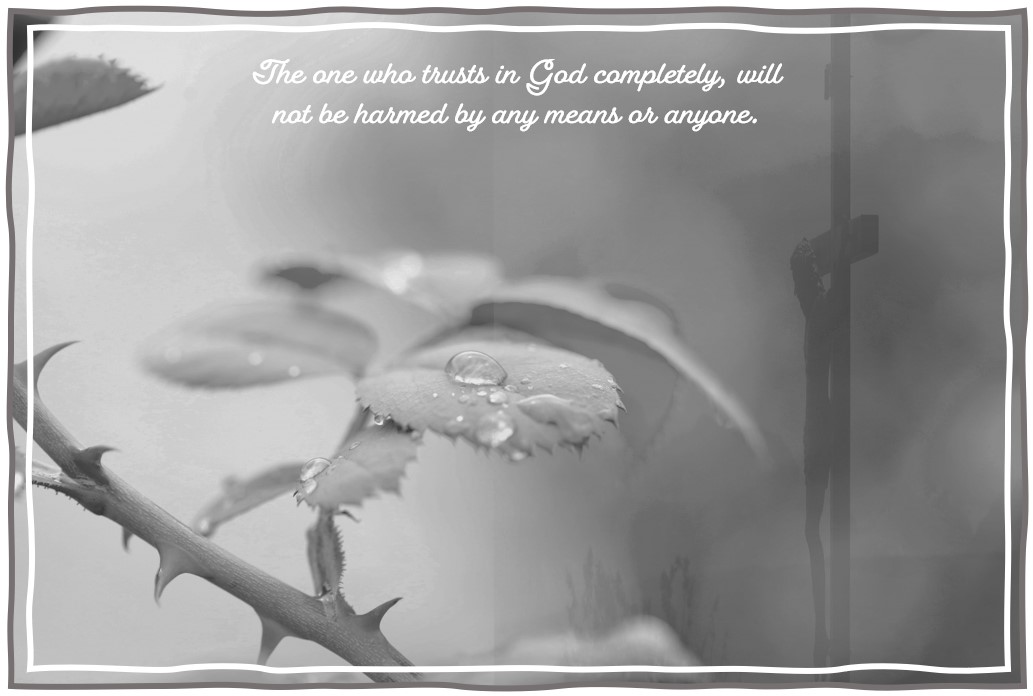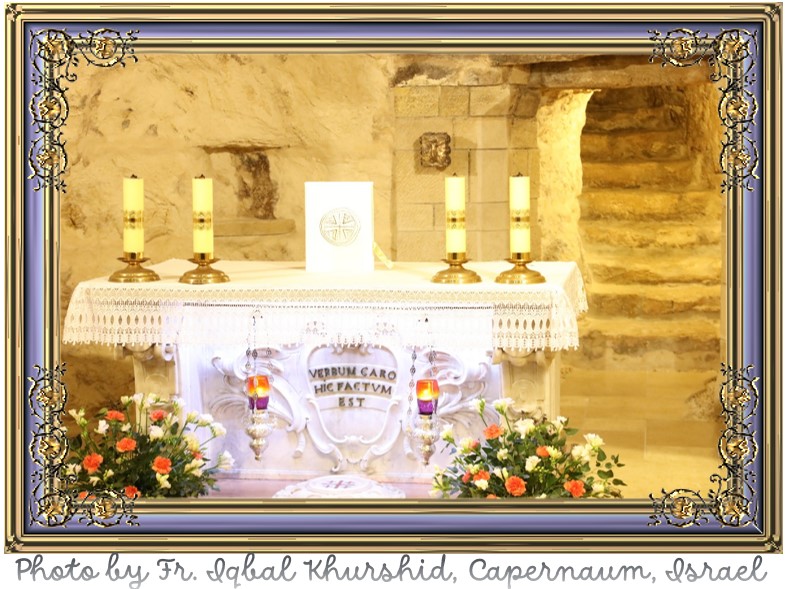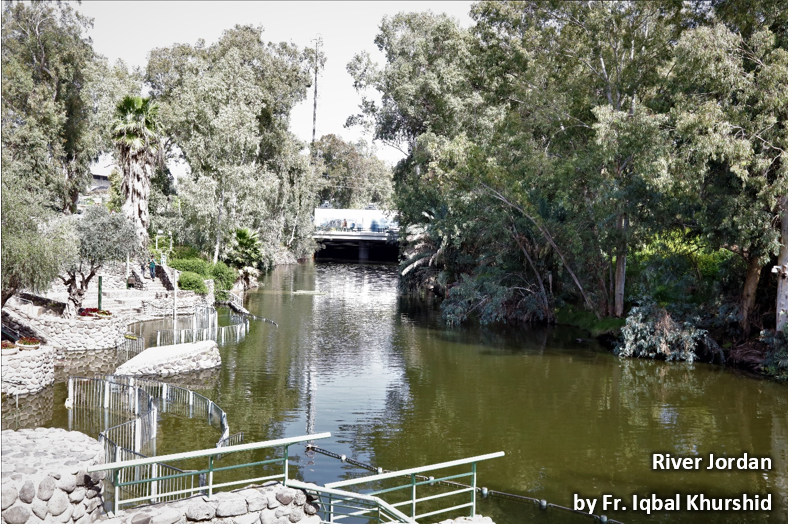
5th Sunday in Ordinary Time Year A ~ February 5, 2023
THE ESSENCE OF DISCIPLESHIP
As we are approaching closer to begin our Lent season, Readings from the Sacred Scripture are helping us to see the essence of our discipleship by meditating on the Sacred Scripture. Last Sunday we reflected on the Beatitudes of the Lord where were given four beatitudes of joy and happiness and four with the reward to gain after living out our discipleship in a perfect way. The last one was a very personal one to rejoice in the Lord in the midst of persecution and suffering. Today once again we continue to hear about the essence of our discipleship that it must be felt by other as St. John quotes the word of the Lord “by your work people will know that you are my disciples”. Chapter 4 of the Acts of the Apostle does show us the true essence of the discipleship by depicting the early Christians’ spirit of coming together and uniting themselves as one.
Bishop Diadochus reflects on the mystery of discipleship this way “The light of true knowledge makes it possible to discern without error the difference between good and evil. Then the path of justice, which leads to the Son of Justice, brings the mind into the limitless light of knowledge, since it never fails to seek the love of God with all confidence. Therefore, we must maintain great stillness of mind, even amidst our struggles. We shall then be able to distinguish between the different types of thoughts that come to us: those that are good, those sent by God, we will treasure in our memory; those that are evil and inspired by the devil we will reject. A comparison with the sea may help us. A tranquil sea allows the fisherman to gaze right to its depths. No fish can hide there and escape his sight. The stormy sea, however, becomes murky when it is agitated by the winds. The very depths that it revealed in its placidness, the sea now hides. The skills of the fisherman are useless”.
Further he says “Only the Holy Spirit can purify the mind: unless the strong man enters and robs the thief, the booty will not be recovered. So, by every means, but especially by peace of soul, we must try to provide the Holy Spirit with a resting place. Then we shall have the light of knowledge always shining within us, and it will show up for what they are all the dark and hateful temptations that come from demons, and not only will it show them up: exposure to this holy and glorious light will also greatly diminish their power. This is why the Apostle says: Do not stifle the Spirit. The Holy Spirit is the Spirit of goodness: do not grieve him by your evil actions and thoughts, and so deprive yourself of the defense his light affords you. In his own being, which is eternal and life-giving, he is not stifled, but when he is grieved, he turns away and leaves the mind in darkness, deprived of the light of knowledge”.
The mind can taste and distinguish accurately whatever is presented to it. Just as when our health is good we can tell the difference between good and bad food by our bodily sense of taste and reach for what is wholesome, so when our mind is strong and free from all anxiety, it is able to taste the riches of divine consolation and to preserve, through love, the memory of this taste. This teaches us what is best with absolute certainty. As Saint Paul says: My prayer is that your love may increase more and more in knowledge and insight, and so enable you to choose what is best.
Here I would like to share some quotes of St. Francis of Assisi about discipleship to examine our own. He says:
“Start by doing what is necessary, then what is possible, and suddenly you are doing the impossible.”
“For it is in giving that we receive.”
“Remember that when you leave this earth, you can take with you nothing that have received–only what you have given.”
“I have been all things unholy. If God can work through me, He can work through anyone.”
“Lord, make me an instrument of thy peace. Where these is hatred, let me sow love…” (The Peace Prayer)
“Preach the Gospel at all times. Use words if necessary.”
“The deeds you do may be the only sermon some persons will hear today.”
“The only thing ever achieved in life without effort is failure.”
“Do few things but do them well, simple joys are holy.”
“A single sunbeam is enough to drive away many shadows.”
The life of Apostles and the saints in the Church is the source of knowing the essence of our discipleship and to understand that every day of our discipleship is to make other people feel who we are and what we are doing to witness his name to the world. (Please read 2 Corinthians 4:1-15).
A young man was eager to grow in His Christian life. He got a piece of paper and made a list of all the things he would do for God. He wrote down the things he would give up, the places he would go to minister and the areas of ministry he would enter. He was excited. He took that list to the church and put it on the altar. He thought he would feel joy, but instead he felt empty. So, he went home and started adding to his list. He wrote down more things he would do and wouldn’t do. He took the longer list and put it on the altar, but still he felt nothing.
He went to a wise, old pastor, told him the situation, and asked for help. The pastor said, “Take a blank sheet of paper. Sign your name at the bottom. Put that on the altar.” The young man did, and then peace came to his heart.
Peace comes from the Lord whom our discipleship takes root in understanding that without him we are nothing. In the First Reading we see how Prophet Isaiah helps us to see the true meaning and essence of our discipleship by letting us know that we must help the needy and oppressed. (Please read Hebrews 13:1-5). He indicates that our discipleship is based on the charity and love we show towards other people who are in need as St. Matthews says “if you did this to least of my brethren, you have done to me”. (Please read Matthew 25).
There are no elements of selfishness in the discipleship and if there is, then it is not Christian discipleship. Let me share a very interesting story which is entitled “The Weight of the Soil”:
There was a very clever and cunning landlord who owned lots of land in a village. He cunningly loaned small amounts of money when needy came to him for help. Taking advantage of those who were not well-educated, he kept adding on interest to the principal amount. The amount for repayment of the loan would raise up so much that people couldn’t pay back and end up surrendering their land to the landlord.
Now, his eyes were on some land owned by an old lady near his house. She was all alone, with no family. She would plant her own crop and fulfill her needs. The landlord was not able to figure out how to lure her into giving up her land to him. He then bribed a government official in the village and forged papers of ownership to his name. He along with a government official visited the old lady and served her a notice to hand over the land to him.
The old lady was shocked to know this and pleaded that she has been living there her whole life and this land has been owned by her ancestors, her loved ones were buried there and she inherited it, how can someone claim this now? She approached local court, but the landlord had bribed everyone and had presented forged ownership papers. Thus, the court delivered the judgment in the landlord’s favor.
The dejected old lady then prepared to vacate the land while the landlord and his associates stood there waiting for her to leave. While leaving, filled with tears, the old lady approached the landlord and said, “Sir, you have taken everything from me today, my entire life was spent here, but now I am leaving. The land here is where I played, grew up with my family and this soil is very dear to me.” She added further, “we all are made of soil, and so anyone can have an affection towards it. Allow me to carry a basket filled with this soil to keep with me, with that by my side I will always have an aroma of this place till I die peacefully.”
The landlord smirked thinking since he had gained ownership of her entire land without paying her, might as well let her have a basket of soil, so she can leave quietly. He said, “fine. You can fill up your basket.”
The old lady started filling up her basket with soil. She overfilled it and was struggling to lift the basket to carry over her head. She then told the landlord, “Sir, will you please lend a hand to put the basket over my head?” The landlord came forward to help and said, “Oh you poor old lady, didn’t you think before you overfilled this basket? You are struggling to lift this basked filled with soil then how can you carry this with you?”
With tears in her eyes, the old lady said, “oh sir, this entire land was my own, spent my whole life here, yet I am struggling to carry a single basket of soil from here while I am still breathing. I won’t be able to carry it with me even when I die. You sir have so much of other’s land. How will you carry it all with you?”
The landlord stood stunned hearing this. He realized his mistake and fell on the old lady’s feet asking for forgiveness. He requested her to live here happily and returned her land. Remember our discipleship is based on genuine love which made our Master lay down his life for us too so that we may be saved.
St. Augustine reflecting on the Letter of St. Paul to the Galatians, explains about the true dignity and honor of being the followers Christ: Paul writes to the Galatians to make them understand that by God’s grace they are no longer under the law. When the Gospel was preached to them, there were some among them of Jewish origin known as circumcisers—though they called themselves Christians—who did not grasp the gift they had received. They still wanted to be under the burden of the law. Now God had imposed that burden on those who were slaves to sin and not on servants of justice. God had given a just law to unjust men to show them their sin, not to take it away. For sin is taken away only by the gift of faith that works through love. The Galatians had already received this gift, but the circumcisers claimed that the Gospel would not save them unless they underwent circumcision and were willing to observe also the other traditional Jewish rites. The Galatians, therefore, began to question Paul’s preaching of the Gospel because he did not require Gentiles to follow Jewish observances as other apostles had done. Even Peter had yielded to the scandalized protests of the circumcisers. He pretended to believe that the Gospel would not save the Gentiles unless they fulfilled the burden of the law. But Paul recalled him from such dissimulation, as is shown in this very same letter. A similar issue arises in Paul’s letter to the Romans, but with an evident difference. Through his letter to them Paul was able to resolve the strife and controversy that had developed between the Jewish and Gentile converts. In the present letter Paul is writing to persons who were profoundly influenced and disturbed by the circumcisers. The Galatians had begun to believe them and to think that Paul had not preached rightly, since he had not ordered them to be circumcised. And so the Apostle begins by saying: I am amazed that you are so quickly deserting him who called you to the glory of Christ, and turning to another gospel.
After this there comes a brief introduction to the point at issue. But remember in the very opening of the letter Paul had said that he was an apostle not from men nor by any man, a statement that does not appear in any other letter of his. He is making it quite clear that the circumcisers, for their part, are not from God but from men, and that his authority in preaching the Gospel must be considered equal to that of the other apostles. For he was called to be an apostle not from men nor by any man, but through God the Father and his Son, Jesus Christ.
In today’s Gospel, Jesus says to his disciples: “You are the salt of the earth. You are the light of the world”. He uses symbolic language not so much to give a definition of the disciple but to set out for those who wish to follow Him certain criteria for living their mission in the world.
The first image: Salt – Salt is the component that gives flavor and that stores and preserves food from corruption. The disciple is therefore called to keep society away from the dangers and the corrosive elements that pollute people’s lives. It is a question of resisting sin and moral degradation and bearing witness to the values of honesty and fraternity, without giving in to the worldly enticements of careerism, power, and wealth. The disciple is “salt” who, despite the daily failures because we all have them, rises from the dust of their own mistakes, starting again with courage and patience, every day, to seek dialogue and encounter with others. A disciple is “salt” who does not seek approval and praise, but strives to be a humble and constructive presence, in fidelity to the teachings of Jesus who came into the world not to be served, but to serve. And this attitude is greatly needed!
The second image: Light – “You are the light of the world.” The light disperses the darkness and allows you to see. Jesus is the light that has dispelled the darkness but remains in the world and in individual people. It is the task of the Christian to dispel it further by making Christ’s light shine among others and by proclaiming His Gospel. This outpouring of light can come from our words, but it must come mainly from our ‘good deeds’. A disciple and a Christian community are the light of the world when they direct others to God, helping each person to experience His goodness and mercy. A disciple of Jesus is light when he or she knows how to live their faith outside of confined spaces, helping to eliminating prejudices, eliminating slander, and in bringing the light of truth into situations tainted by hypocrisy and lies. You must be the light. But it is not my own light, it is the light of Jesus: we are instruments of Jesus, and we must radiate His light to reach everyone.
Jesus invites us not to be afraid to live in the world, even if there are sometimes conditions of conflict and sin in it. In the face of violence, injustice and oppression, Christians cannot shut up within themselves in or hide in the security of their own enclosure; even the Church cannot shut up within herself, she cannot abandon her mission of evangelization and service. Jesus, in the Last Supper, asked the Father not to remove the disciples from the world, to leave them, there, in the world, but to guard them from the spirit of the world. The Church gives generously and tenderly to the least and the poor: this is not the spirit of the world, this is her light, she is salt. The Church hears the cry of the least and the excluded because she is aware of being a pilgrim community called to extend throughout history the saving presence of Jesus Christ. St. Mother Teresa says “do small thing with love” is a true call to our discipleship. Jesus does not call us to be the light of the world but he himself is the light of the world who illumines the darkness our lives to his witness. He is the Son of Love, Justice, and Peace.
Other Sermons In This Series

First Sunday of Lent Year A ~ February 26, 2023
February 24, 2023

16th Sunday in Ordinary Time Year C ~ July 17, 2022
July 15, 2022


